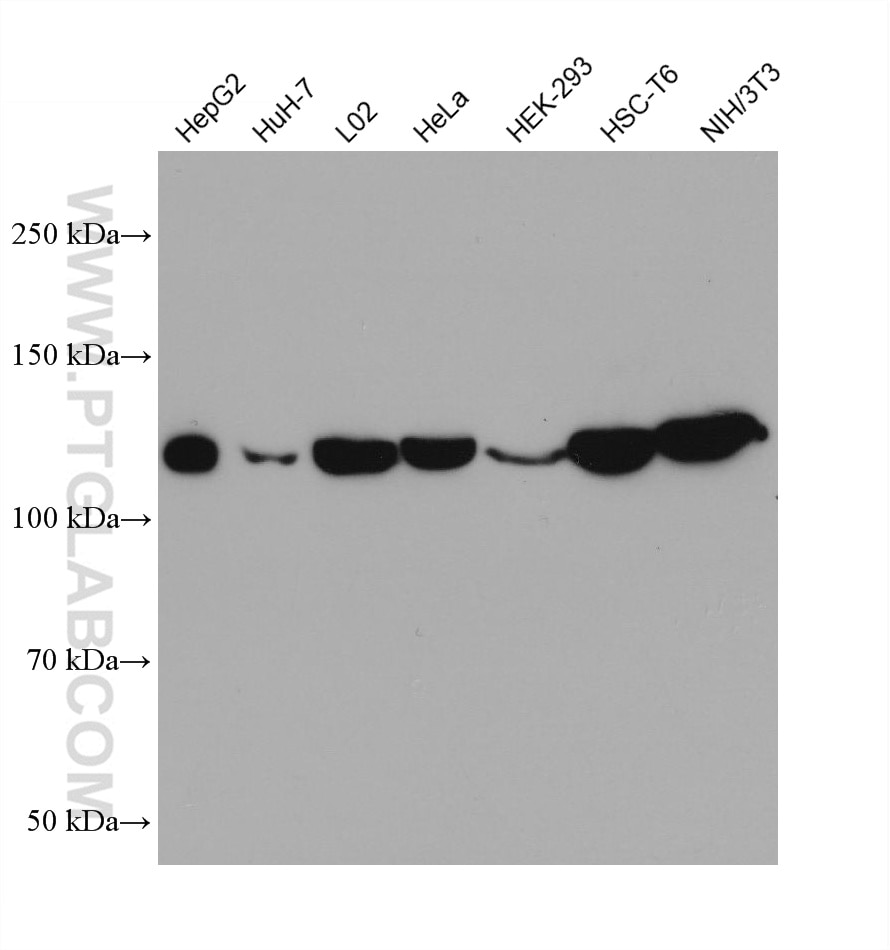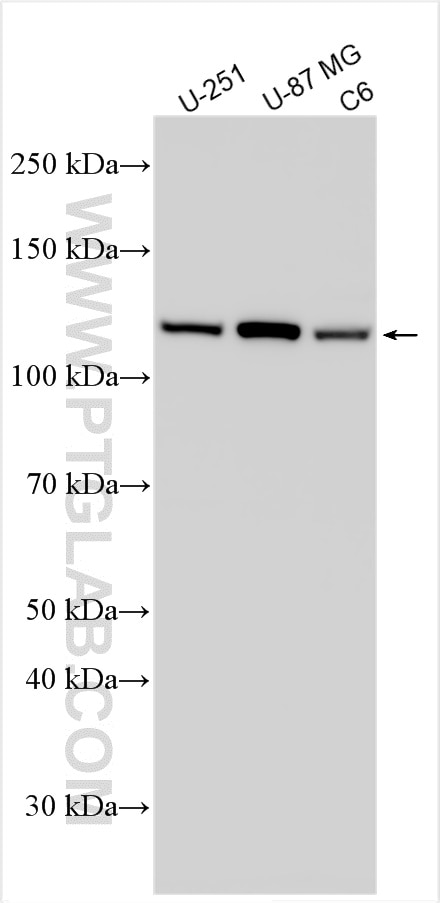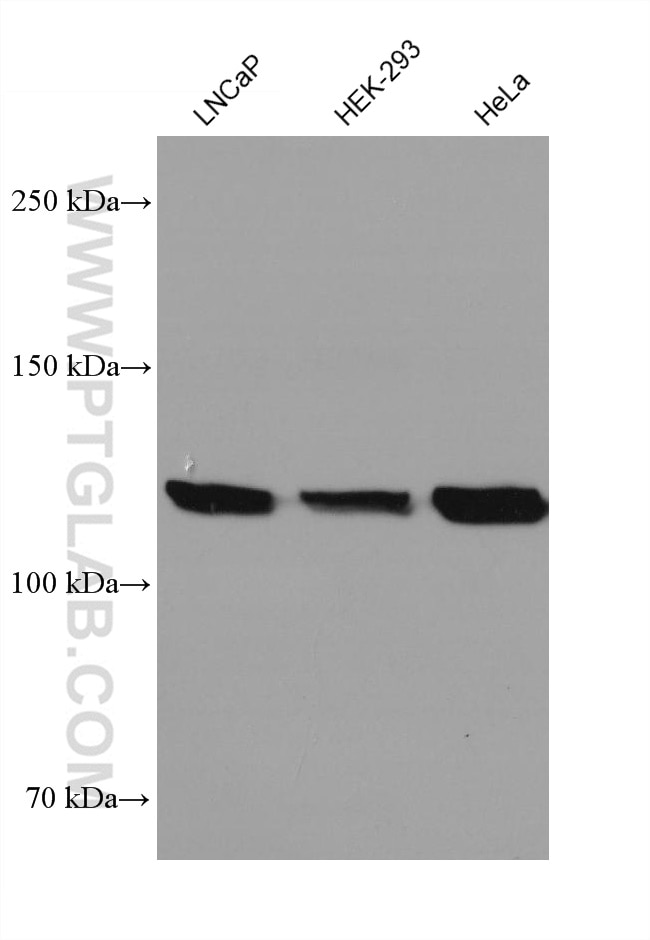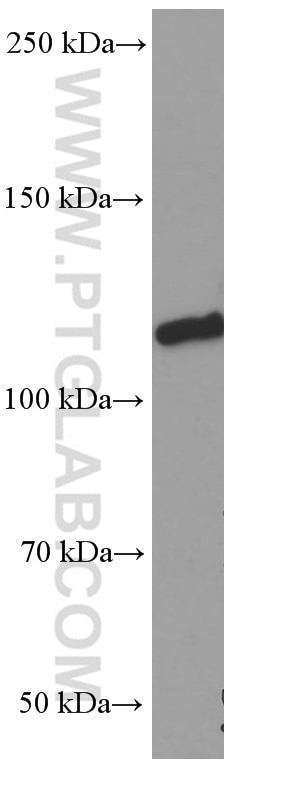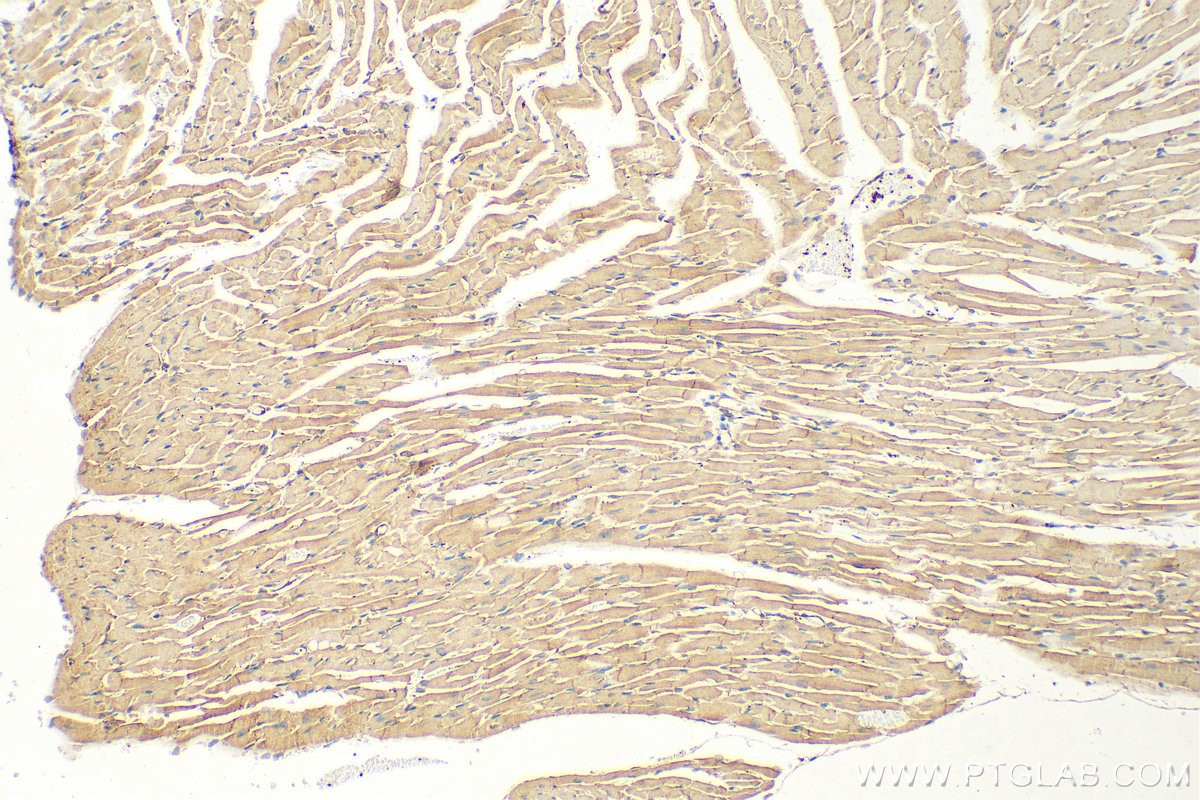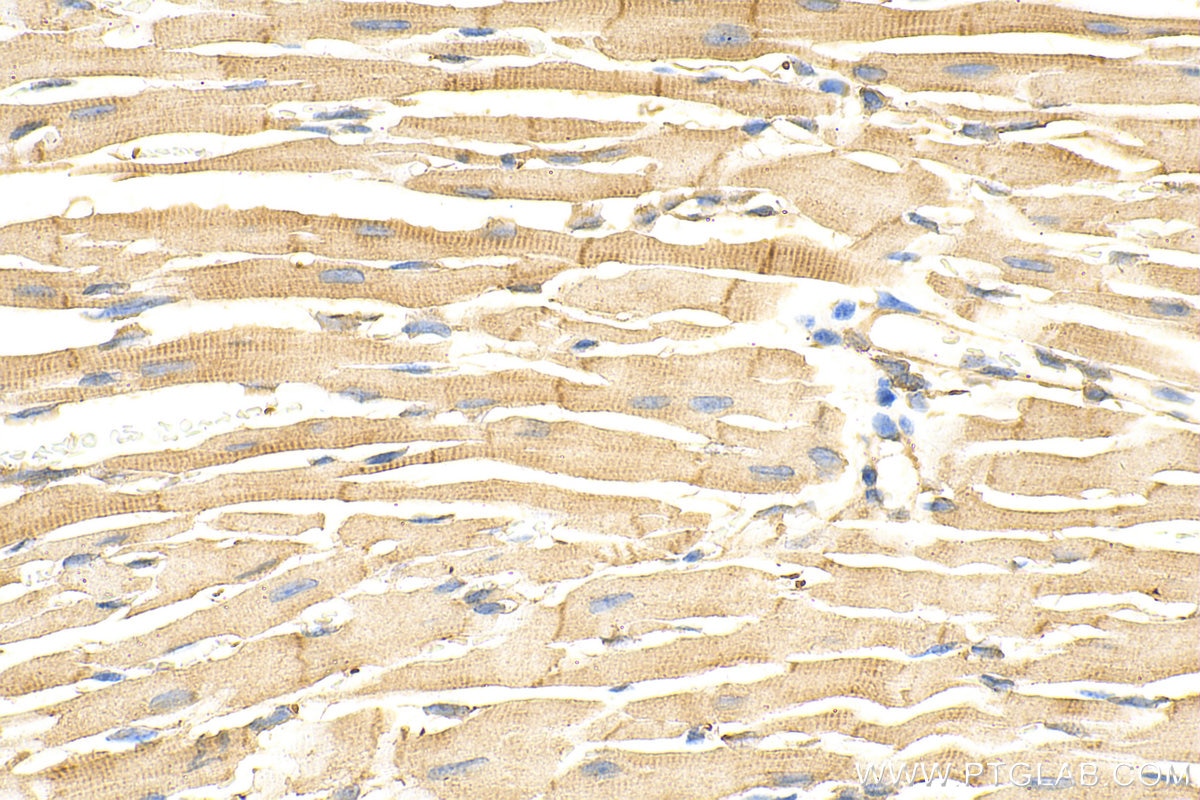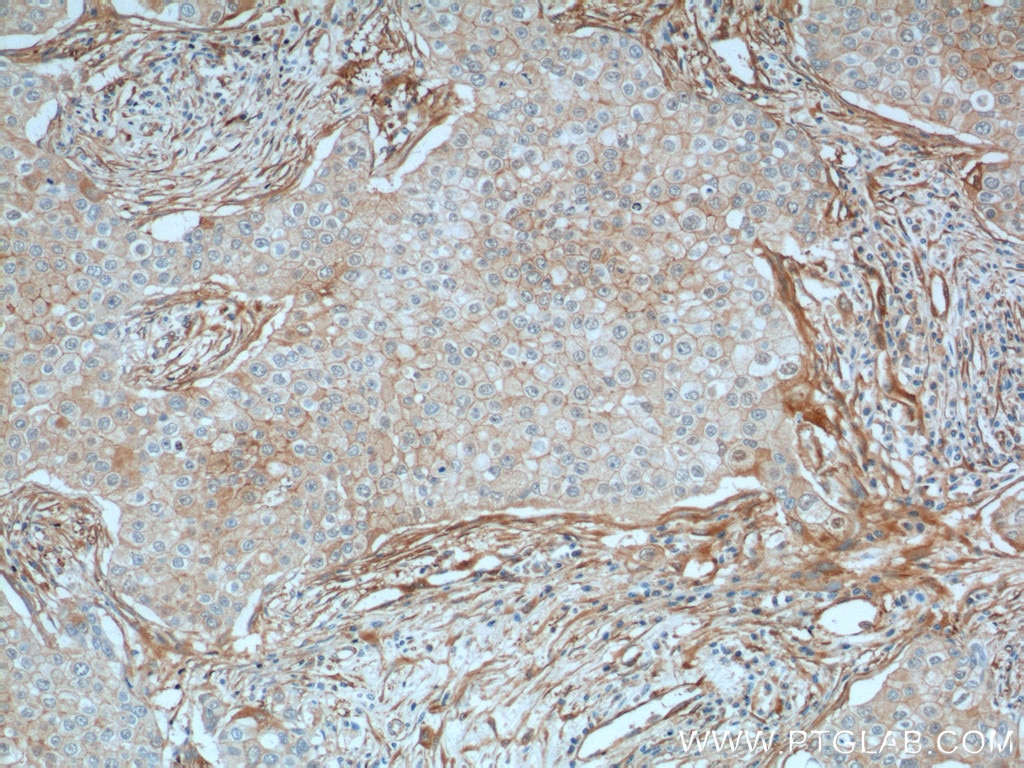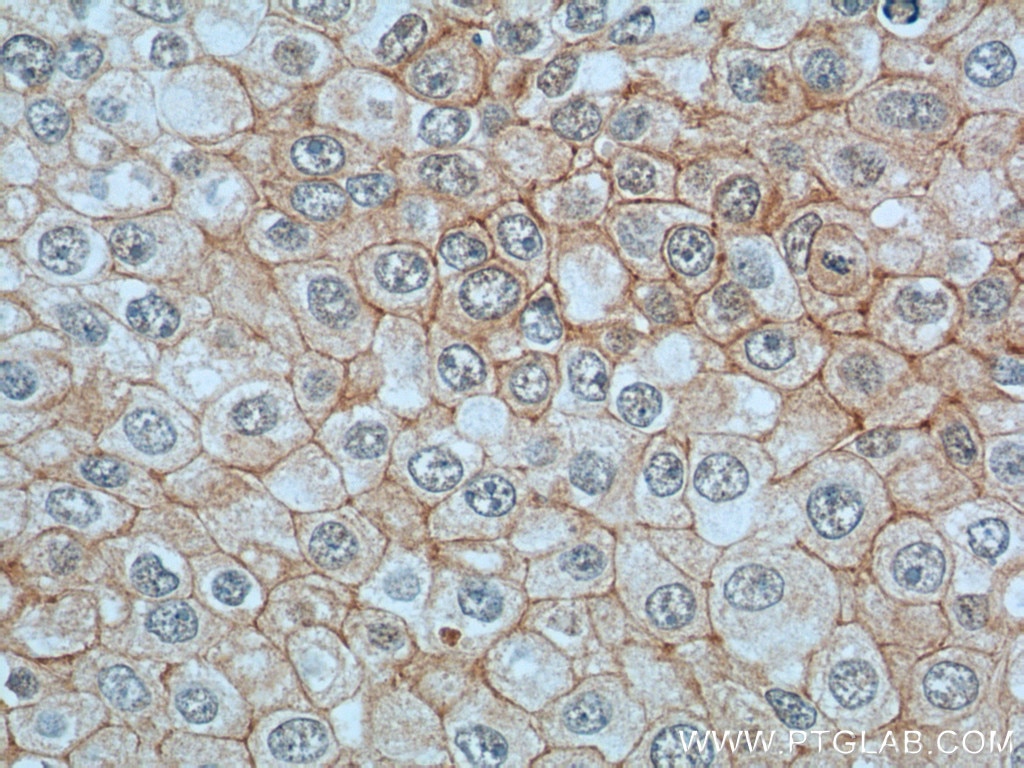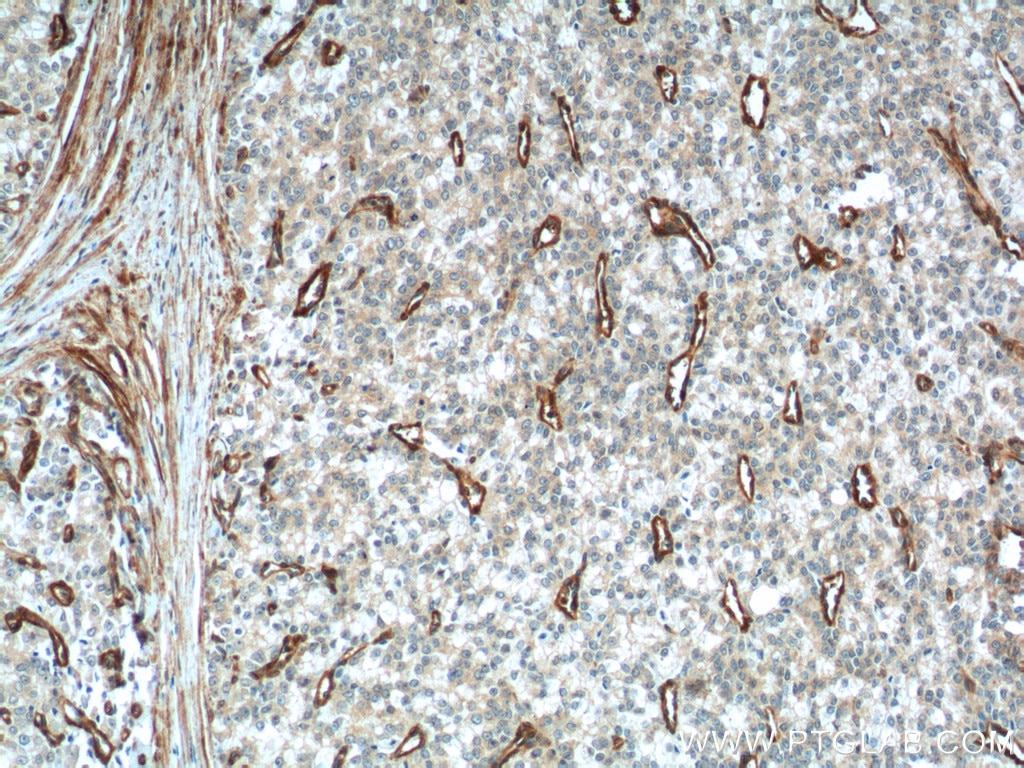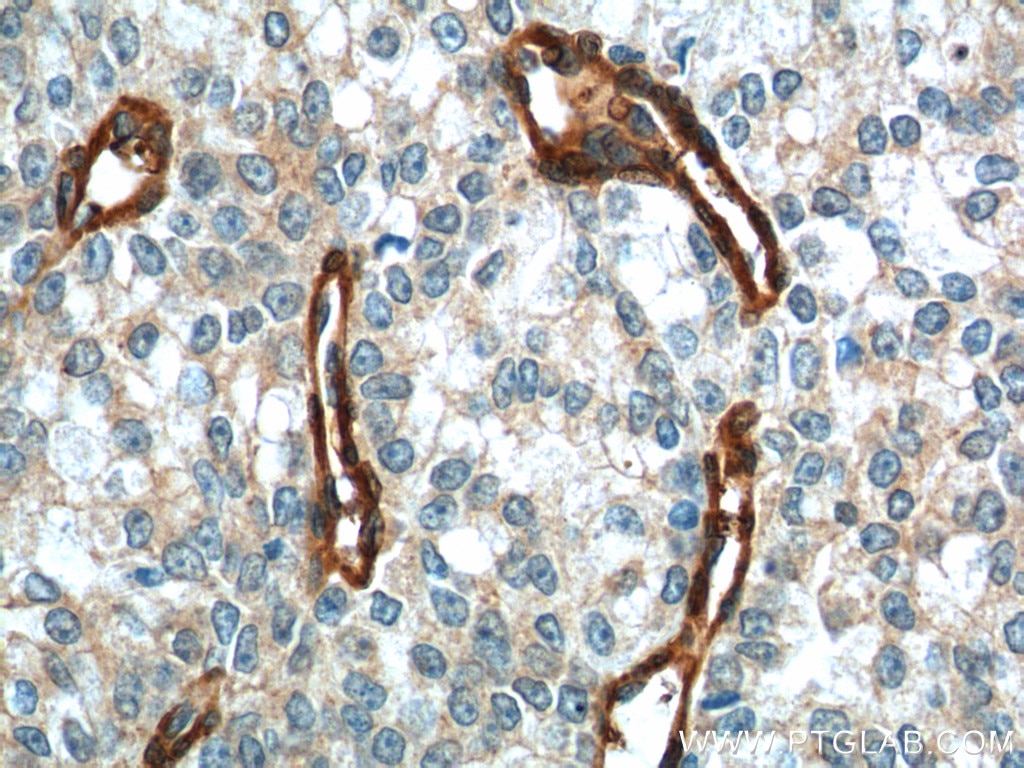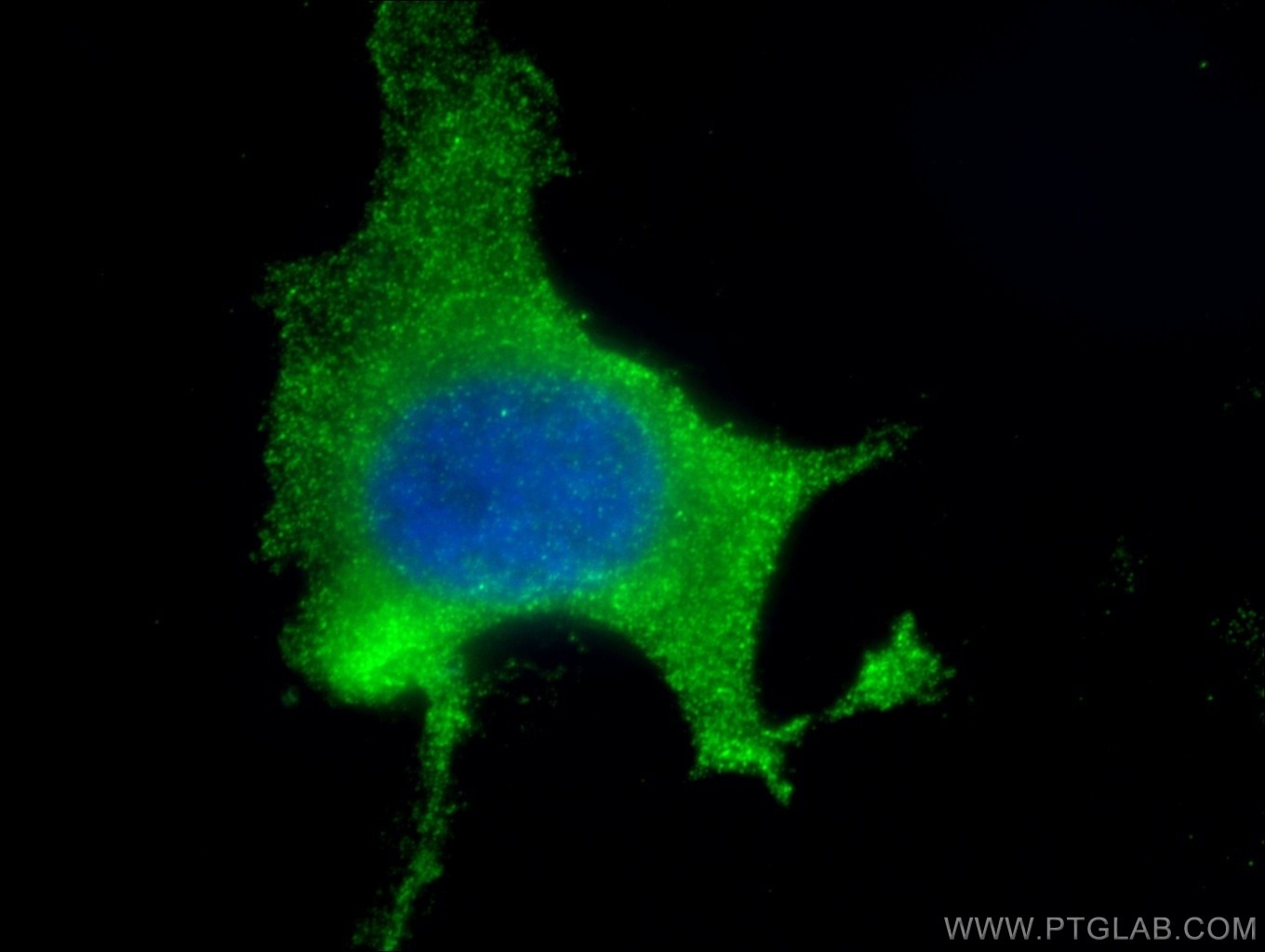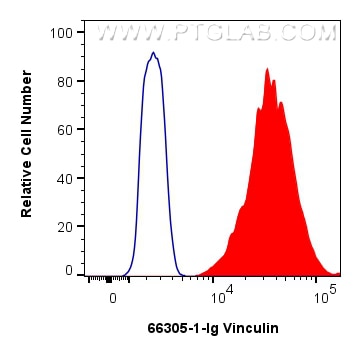Validation Data Gallery
Tested Applications
| Positive WB detected in | HepG2 cells, pig heart tissue, U-251 cells, LNCaP cells, U-87 MG cells, C6 cells, HEK-293 cells, HeLa cells, HuH-7 cells, L02 cells, HSC-T6 cells, NIH/3T3 cells |
| Positive IHC detected in | human breast cancer tissue, human prostate cancer tissue, mouse heart tissue Note: suggested antigen retrieval with TE buffer pH 9.0; (*) Alternatively, antigen retrieval may be performed with citrate buffer pH 6.0 |
| Positive IF/ICC detected in | HeLa cells |
| Positive FC (Intra) detected in | HeLa cells |
Recommended dilution
| Application | Dilution |
|---|---|
| Western Blot (WB) | WB : 1:5000-1:50000 |
| Immunohistochemistry (IHC) | IHC : 1:50-1:500 |
| Immunofluorescence (IF)/ICC | IF/ICC : 1:50-1:500 |
| Flow Cytometry (FC) (INTRA) | FC (INTRA) : 0.25 ug per 10^6 cells in a 100 µl suspension |
| It is recommended that this reagent should be titrated in each testing system to obtain optimal results. | |
| Sample-dependent, Check data in validation data gallery. | |
Published Applications
| WB | See 162 publications below |
| IHC | See 2 publications below |
| IF | See 34 publications below |
| CoIP | See 1 publications below |
Product Information
66305-1-Ig targets Vinculin in WB, IHC, IF/ICC, FC (Intra), CoIP, ELISA applications and shows reactivity with human, mouse, rat, pig samples.
| Tested Reactivity | human, mouse, rat, pig |
| Cited Reactivity | human, mouse, rat, pig, rabbit, zebrafish, hamster |
| Host / Isotype | Mouse / IgG1 |
| Class | Monoclonal |
| Type | Antibody |
| Immunogen |
CatNo: Ag24946 Product name: Recombinant human Vinculin protein Source: e coli.-derived, PET30a Tag: 6*His Domain: 777-1066 aa of BC039174 Sequence: PKFREAVKAASDELSKTISPMVMDAKAVAGNISDPGLQKSFLDSGYRILGAVAKVREAFQPQEPDFPPPPPDLEQLRLTDELAPPKPPLPEGEVPPPRPPPPEEKDEEFPEQKAGEVINQPMMMAARQLHDEARKWSSKGNDIIAAAKRMALLMAEMSRLVRGGSGTKRALIQCAKDIAKASDEVTRLAKEVAKQCTDKRIRTNLLQVCERIPTISTQLKILSTVKATMLGRTNISDEESEQATEMLVHNAQNLMQSVKETVREAEAASIKIRTDAGFTLRWVRKTPWYQ 相同性解析による交差性が予測される生物種 |
| Full Name | vinculin |
| Calculated molecular weight | 1133 aa, 124 kDa |
| Observed molecular weight | 117 kDa |
| GenBank accession number | BC039174 |
| Gene Symbol | Vinculin |
| Gene ID (NCBI) | 7414 |
| RRID | AB_2810300 |
| Conjugate | Unconjugated |
| Form | |
| Form | Liquid |
| Purification Method | Protein G purification |
| UNIPROT ID | P18206 |
| Storage Buffer | PBS with 0.02% sodium azide and 50% glycerol{{ptg:BufferTemp}}7.3 |
| Storage Conditions | Store at -20°C. Stable for one year after shipment. Aliquoting is unnecessary for -20oC storage. |
Background Information
Vinculin belongs to the vinculin/alpha-catenin family. It is an actin filament (F-actin)-binding protein which involved in cell-matrix adhesion and cell-cell adhesion. Vinculin regulates cell-surface E-cadherin expression and potentiates mechanosensing by the E-cadherin complex. It may also play important roles in cell morphology and locomotion. Vinculin is a 117-kDa, 1,066-amino-acid protein which is ubiquitously expressed. Its splice variant, metavinculin (124 kDa), is muscle-specific.
Protocols
| Product Specific Protocols | |
|---|---|
| IF protocol for Vinculin antibody 66305-1-Ig | Download protocol |
| IHC protocol for Vinculin antibody 66305-1-Ig | Download protocol |
| WB protocol for Vinculin antibody 66305-1-Ig | Download protocol |
| Standard Protocols | |
|---|---|
| Click here to view our Standard Protocols |
Publications
| Species | Application | Title |
|---|---|---|
Crit Care Recombinant ACE2 protein protects against acute lung injury induced by SARS-CoV-2 spike RBD protein. | ||
Adv Sci (Weinh) RBMS1 Coordinates with the m6 A Reader YTHDF1 to Promote NSCLC Metastasis through Stimulating S100P Translation | ||
Cell Rep Med Development of an orally bioavailable CDK12/13 degrader and induction of synthetic lethality with AKT pathway inhibition | ||
Dev Cell HMOX1-LDHB interaction promotes ferroptosis by inducing mitochondrial dysfunction in foamy macrophages during advanced atherosclerosis |

